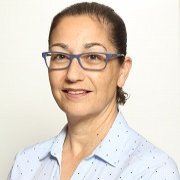Liat is an Associate Professor at the Bob Shapell School of Social Work at Tel Aviv University. She received her three degrees (B.S.W., M.S.W., and Ph.D.) from the School of Social Work at Tel Aviv University. Prof. Hamama's research primarily focuses on exploring the links between stressful/ traumatic situations, personal and environmental resources, and subjective well-being. Her work is grounded in theoretical models derived from stress and coping theories, which she extends by exploring salutogenic questions related to three main target populations: children, adolescents, and the individuals who support or surround them (such as parents, social workers, teachers, and healthcare providers).
The main courses she teaches include intervention skills with children and adolescents, clinical practicum focused on children and adolescents, health and illness issues in children, emotional and behavioral problems in children, cognitive-behavioral therapy, and other related topics. In addition, she supervises students in the research track, focusing on the subjects she explores in her research and academic work.
Prof. Hamama has been included in the "Club 100”: One of the 100 outstanding lecturers at Tel Aviv University since 2010. Between 2010 and 2023, she was selected four times as the "Rector's Award for Excellence in Teaching”.
In September 2021, Prof. Hamama was appointed Head of the Renata Adler Memorial Research Center for Child Welfare and Protection. The center serves as a hub for research, training, and the development of policies and programs in the field of child welfare, both in Israel and internationally.
Selected Publications
Hamama, L., Sarid, O., & Hamama-Raz, Y. (2025). Psychological distress, resources, and coping strategies among evacuees and non-evacuees from armed conflict zone: A network analysis. Stress and Health, 41, e3525. DOI: https://doi.org/10.1002/smi.3525
Hamama, L., Finklestein, M., & Hamama-Raz, Y. (2024). Adolescents' posttraumatic growth during the COVID-19 pandemic: The links between differentiation of self, parents' posttraumatic growth, and adolescents' gender. Children and Youth Services Review, 167, 108022. DOI:https://doi.org/10.1016/j.childyouth.2024.108022
Hamama, L., & Levi S. (2024). Adolescent siblings of children with cancer: Resource-based profiles, normalization, and search for meaning in life. Journal of Adolescence, 96(2), 221-234. DOI: https://doi.org/10.1002/jad.12269
Hamama, L. (2024). Perceived social support, normalization, and subjective well-being among family members of a child with autism spectrum disorder. Journal of Autism and Developmental Disorders, 54, 1468–1481.DOI: https://doi.org/10.1007/s10803-022-05857-9
Hamama, L. (2022). Modeling linkages between self-efficacy, normalization, and well-being factors among Israeli mothers of children with neurodevelopmental disorders. Research in Developmental Disabilities, 128, 104295. DOI: https://doi.org/10.1016/j.ridd.2022.104295
Hamama, L., & Levin-Dagan, N. (2022) People who contracted COVID-19: The mediating role of shame and guilt in the link between threatening illness perception and mental health measures. Anxiety, Stress and Coping, 35(1), 72–85. DOI: https://doi.org/10.1080/10615806.2021.1964073
Hamama, L., & Gaber, S. (2021). Seeing the siblings: Gender differences in emerging-adult siblings of individuals with Autism. Research in Developmental Disabilities, 108, 103829. DOI: https://doi.org/10.1016/J.RIDD.2020.103829
Hamama, L., & Hamama-Raz, Y. (2021). Meaning in life, self-control, positive and negative affect: Exploring gender differences among adolescents. Youth & Society, 53(5), 699-722. DOI: https://doi.org/10.1177/0044118X19883736
Hamama, L., & Alshech, M. (2018). Children with Epilepsy: Assessing state anxiety through drawings and a self-report questionnaire. Arts & Health, 12(2), 139–153. DOI: https://doi.org/10.1080/17533015.2018.1534250
Hamama, L., & Sahron, M. (2013). Posttraumatic growth and subjective well-being among caregivers of chronic patients: A preliminary study. Journal of Happiness Studies, 14(6), 1717–1737. DOI: https://doi.org/10.1007/S10902-012-9405-8
Hamama, L. (2012). Differences between children's social workers and adult social workers in the sense of burnout, work conditions, and organizational social support. British Journal of Social Work, 1–21. DOI: https://doi.org/10.1093/BJSW/BCR135


